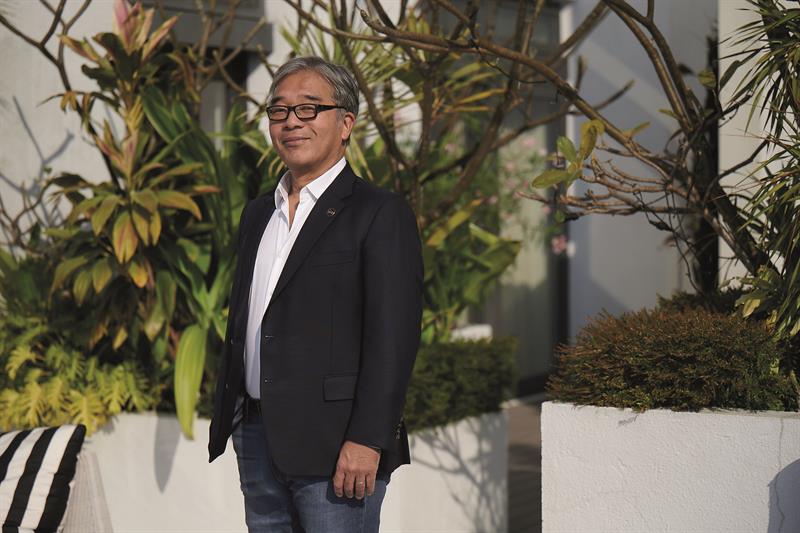
A £3.5 million research programme funded by the Wellcome Trust and the Chen Yet-Sen Family Foundation has been launched to explore how vision care improves development throughout life.
The five-year Engine project aimed to examine how affordable, effective and widely available spectacles could help achieve the United Nations’ Sustainable Development Goals.
It would assess how vision correction could impact life in different ways, which included reducing road traffic injuries and enhancing learning for children in Africa who were long-sighted.
In addition, researchers would look at how spectacles could slow the onset of cognitive decline and dementia among elderly people, as well as improve economic independence by supporting them when using online banking on smartphones.
Engine’s multi-disciplinary research team was led by Professor Nathan Congdon from Queen’s University Belfast and Dr Rohit Khanna from the LV Prasad Eye Institute in India.
 James Chen, Chen Yet Sen Family Foundation
James Chen, Chen Yet Sen Family Foundation
Professor Congdon highlighted previous projects in China and India have had a positive impact on school performance and workplace productivity. ‘Decision-makers need high-quality evidence. Our previous trials showing glasses enhance school performance in China (Seeing is Learning) and workplace productivity in India (Prosper) have spurred government and industry-led vision programmes around the world.
‘Engine’s local partners in academia, civil society and government are well-placed to ensure this project drives similar policy action, changing lives and helping achieve the Sustainable Development Goals in these four countries and beyond,’ he said.
If successful, it was hoped the project could lead to improvement in road safety and slowing cognitive decline in low-resource countries.
The charities said traffic injuries were the leading cause of death globally between the ages of five and 29. It noted that while only 60% of vehicles were found in low and middle-income countries, 90% of traffic deaths occur there.
Driving change
Researchers from 29 institutions in six countries have collaborated on the project, including schools of public health, government ministries, patient groups, companies and non-governmental organisations.
Engine, which stands for Eyecare Nurtures Good-health, Innovation, driviNg safety and Education, was made up of four component studies to create lasting policy change and improve quality of life for people in low and middle-income countries.
Stable (Slashing Two-wheeled Accidents by Leveraging Eyecare) would assist local partners, including the Vietnamese Ministry of Transport, to tackle uncorrected short-sightedness and related motorcycle crashes among young people in Vietnam.
The Zeal (Zimbabwe Eyecare and Learning) study would work with local partners who were implementing the Zimbabwe government’s national school vision project to explore how targeting long-sighted children with low-cost screening could add to the academic impact of the programme.
Clever (Cognitive Level Enhancement through Vision Exams and Refraction) supports the Indian government’s strategy of finding scalable, low-cost means of preventing dementia.
Thrift (Transforming Households with Refraction and Innovative Financial Technology) would use the Bangladesh government’s plan to digitise all social safety net payments to the elderly by providing free spectacles and training to help them better utilise smartphones and improve their financial independence.
The charities said the Clever and Stable studies were the first trials of their kind to examine how low-cost vision care could slow age-related cognitive decline and deliver safer roads.
James Chen, chair of the Chen Yet Sen Family Foundation, said: ‘700 years on from the invention of glasses, poor vision is still the largest unaddressed disability in the world, and getting worse.
‘We will never be able to complete the Sustainable Development Goals unless this hurdle is faced. This research programme represents a watershed moment in proving the importance of addressing vision correction throughout the life course and development agenda.’
